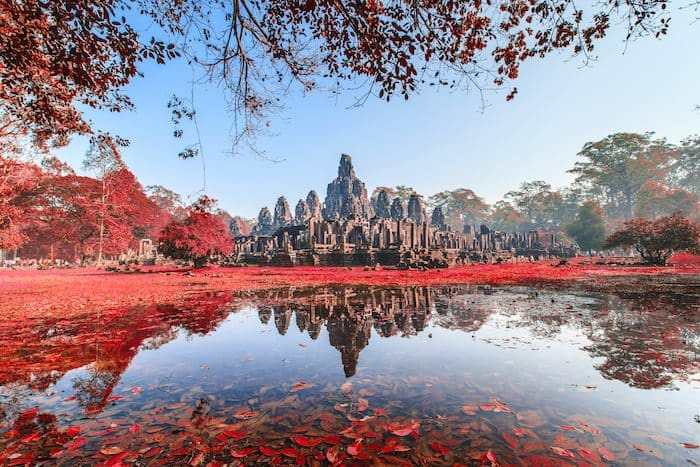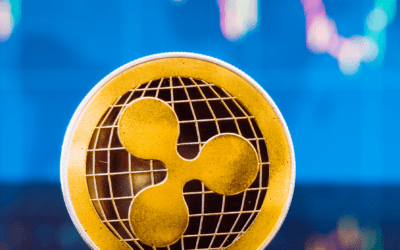Dateline: Tbilisi, Georgia One thing I’ve learned over the years since I left the US to explore the world is that there is no end to the opportunities for investment and business overseas. From Latin America to Africa, Asia to Europe and beyond, there are more opportunities than you could possibly imagine. That’s one reason I’m always so surprised by the people who choose to stay in one country their entire life. There are millions of people who never leave their home country, content to live with whatever chances they were handed when they were born; however lackluster those opportunities may be. Here at Nomad Capitalist, however, we realize that no one is confined to the political lines detailed on maps that we all know as “borders”. And if you’re reading this right now, you probably already know that you can decide to go where you’re treated best. You don’t have to wait for the conditions where you’re at to change. All you have to do is go where the conditions are right for you, right now. Once you realize that’s true, all that’s left to do is discover the opportunities for yourself. While I recommend taking action over reading blogs, I recognize that you’ve got to start somewhere. That’s why we work to bring you the best information out there on investing and doing business overseas. Today is no different.
Asia Frontier Capital
Just a couple of weeks ago we got a look at the experts’ insights on Mongolia. Today, we’re going to expand on those insights by taking a look at the entire Asian frontier market. We recently sat down with the CEO and Fund Manager of Asia Frontier Capital, Thomas Hugger, and he shared some invaluable information for anyone looking to do business or invest throughout emerging Asia. A native of Switzerland, Thomas Hugger is now based in Hong Kong where he has worked as the CFO & COO of Leopard Capital, as well as the Managing Director and Head of Portfolio Management at LGT Bank in Hong Kong. In March of 2012, Hugger became the fund manager of Leopard Capital’s newly launched Asian listed equity fund — which was created to provide a more liquid, diversified fund to private and institutional clients. They launched the fund with just USD$700,000 and, after one year, were only at USD$3.5 million. At that point Leopard Capital decided to close down the fund, which is when Mr. Hugger stepped in and acquired the listed equity business and Hong Kong office from Leopard Capital and began Asia Frontier Capital. He believed in the product and in the future of the Asian frontier markets. Even today, the fund stands out as the only equity fund in Asian frontier markets. There are many global frontier funds or funds focusing only on Africa or Eastern and Central Europe, but AFC is the only fund specifically focused on the frontier markets of Asia. And things are looking great. But where exactly does AFC invest?
AFC’s Country Universe
Currenlty, Asia Frontier Capital invests in Bangladesh, Bhutan, Cambodia, Iraq, Laos, Maldives, Mongolia, Myanmar (Burma), Nepal, Pakistan, Papua New Guinea, Sri Lanka and Vietnam. When they began the fund, AFC determined that they wouldn’t invest in countries that were part of the MSCI emerging markets index. They did, however, choose to include the frontier market countries on MSCI’s list, which are Bangladesh, Pakistan, Sri Lanka and Vietnam. These four countries comprise the biggest markets for the AFC investment fund, with approximately 60-70% exposure in these countries. Besides these four, the fund includes countries that are accessible to foreign investors either directly (i.e. the stock market is open to foreign investment) or indirectly. Indirect investment involves investing in stocks or companies from a country that have at least 50% of the company listed outside the country. For example, Myanmar currently does not allow foreign investment, but AFC has invested in stocks in Singapore of companies that have the majority of their business in Myanmar. They have also invested in Maldivian companies that are listed in Sri Lanka. This allows them to gain exposure in countries that are otherwise off-limits to foreigners. Now, here at Nomad Capitalist, we are committed to boots-on-ground knowledge and — although Mr. Hugger focuses primarily on listed securities — we couldn’t resist asking him for his insights on the conditions for business and investment within the countries where AFC invests.
How are foreign investors treated in these countries?
The first question to ask was, of course, whether or not foreign investors are welcome in the different countries. After all, going where you’re treated best means knowing where you’re wanted and whether or not governments will turn their backs on you at a moment’s notice. So, which countries are welcoming to foreign investors and which would rather you stay away? In reality, the answer to that question isn’t so cut and dry. For example, the Maldives want to promote the hotel industry within their country. If you want to invest in a hotel, you are more than welcome. However, they are extremely restrictive in other regards. In fact, there are certain islands in the Maldives where foreigners are not allowed to go. Only the locals can live there. As Mr. Hugger explained, as a Muslim country they don’t want half-naked tourists running around all over the place. As a result, some of the religious islands are still protected from foreign tourism. But let’s take a quick run-through of the other Asian frontier markets. Cambodia is very welcoming to foreigners. Iraq is generally welcoming, but it depends on your background and particularly your country of origin. Laos is difficult to say since the government is still run by communists, but Mr. Hugger does know Europeans who have invested in hotels there. One place that is wide open to foreign investment is, of course, Mongolia. Foreigners have been going in for years now to set up businesses and the government welcomes them because they know they need the help. As a former Russian satellite state, there is a lot of infrastructure that needs development. Consequently, entertainment industries and natural resource investments like mining are great opportunities there. And then there is Myanmar, which has been closed off for many, many years, but is finally opening up for foreign investment. The law is changing. At the moment it is very difficult, but it is possible. Mr. Hugger has friends who moved there and have made it work. They have to live on visas, but he says that it’s easy to get a visa if you can prove that you are going to invest in a business. Many Australians have gone to Papua New Guinea to start businesses. Sri Lanka is also really welcoming to foreign investment because, again, there are a lot of foreigners there in hospitality with businesses, restaurants and hotels. Vietnam is also very open to receive foreign investments. In Nepal and Bhutan, foreigners are not allowed to invest. In Nepal, if you invest in certain sectors it may be possible. Maybe. Bhutan, however, is a completely closed country. It’s one of the most remote and closed countries in the world.
Regulatory environment
Now, as Mr. Hugger pointed out, there’s a big difference between being “treated best” when you arrive in a country, and being “treated best” during the whole duration of your stay. A big factor that defines whether things are good only on arrival or on a more permanent basis is the regulatory environment. Most of you are looking to move or start a business overseas, so how hard is it to navigate government regulation in Asia’s frontier markets? For a general idea, we can take a quick look at the Doing Business Index. Of 189 countries, here’s how the countries in the AFC fund rank:
-
- Bangladesh: 174
- Myanmar (Burma): 167
- Iraq: 161
- Papua New Guinea: 145
- Pakistan: 138
- Laos: 134
- Maldives: 128
- Cambodia: 127
- Sri Lanka: 107
- Nepal: 99
- Vietnam: 90
- Bhutan: 71
- Mongolia: 56
One look and it’s easy to realize that most of these countries aren’t doing that well. Both Thomas Hugger and the World Bank agree that Bangladesh is one of the hardest countries in the world for doing business. Is it possible to do business there? Yes. But just know that it’s extremely bureaucratic and difficult to get things done, especially as a foreigner. And it’s likely things won’t change any time soon. The good news is that not every country is like Bangladesh. Even though Cambodia doesn’t have the greatest ranking, Mr. Hugger says that of all the countries where AFC invests, Cambodia is definitely the most welcoming to foreign investment. After the country’s devastating civil war, they were so poor that they had no other choice than to open up to foreign investment. Currently, foreigners can own 100% of almost everything except land. Vietnam, Mongolia and Sri Lanka are high up on his list as well, reflecting their rankings which place them at the top of the region’s frontier markets in terms of ease of doing business. Vietnam, especially, is a country that is just opening up and will get even easier in the coming years. A surprising insight from Thomas Hugger is that things will soon be changing in Myanmar as well. Currently, Myanmar is very difficult for foreign business and investment because of the sanctions that were lifted by the US just two years ago. Nothing has happened in the country regarding foreign investment since the end of the 1960s. However, under the current government of Suu Kyi they will pass a new investment law for foreigners. As encouraging as that news is, it will take some time to fully implement the law. Hugger expects that by the end of this year, or by the first or second quarter of next year there should be a new investment law for foreigners in place. After that, things should become easier. There are already many foreigners on the ground in Myanmar looking to get in before the law opens things up and more investors come flooding in. So, despite all the difficulties, there are already some investors trying to find a way through all the barriers. Myanmar is certainly a country to keep on your radar.
Restrictions on foreign ownership
The last factor to look at in terms of regulation and the treatment of foreign investors is whether or not there are restrictions on foreign ownership. In most of the countries in this region, there are restrictions on foreign ownership of land. Some are easing such restrictions, but it is a reality that investors have had to deal with for years. Vietnam, however, just introduced a law that allows foreigners to buy apartments. Vietnam is also pushing for changes in business ownership. Even in emerging countries like Thailand, foreigners aren’t allowed to own 50% of a company. Vietnam, on the other hand, is now going to change that so that foreigners can own 100% of a business. Cambodia already allows 100% foreign ownership on pretty much everything, even banks. As mentioned, the big exception is land. While foreigners cannot own land or apartments, it’s pretty common for foreigners to build skyscrapers or other developments through some holding or other structures. So, officially it’s not allowed, but on the other hand, it’s done and the government is just closing both eyes. However, I wouldn’t suggest taking advantage of such an oversight. We believe in doing everything 100% legal here at Nomad Capitalist. And, since it is illegal to own land, there is nothing stopping a new government from coming in and laying down the law, calling you out on your illegal activity, and even taking away the land. No need to deal in such grey territory when you have so many other options where foreign ownership is allowed.
On-the-ground business opportunities and investment strategies
In the countries where foreign ownership is allowed, what are the kind of things entrepreneurs like you and me could be doing? A wise piece of advice from Thomas Hugger is that you should start a business that you are committed to. Do something you would be okay with doing the rest of your life. It doesn’t make sense to open a steak house if you’re a vegetarian. As an example, Myanmar has great potential in the hotel industry. It has fantastic beaches and great sightseeing spots. So, from an entrepreneur’s point of view, if you like hosting people and working difficult late hours Myanmar would be a great place to open a hotel or anything else in the service industry — especially for leisure, hotel and travel. The opportunities are there in most of the countries, it’s just a matter of getting on the ground and seeing for yourself. From there, it’s up to you to decide the right entrepreneurial fit. You should be aware, though, that foreigners can only own 35-45% of a business in Myanmar. These and other restrictions can usually be resolved working with locals, but doing so often functions like a marriage. If it’s good, it’s great. If it’s bad, it can be very difficult — especially if you part ways. And as a foreigner, you have hardly any rights. You are weaker in comparison to the other party. This is true in most of the countries in this region. If the locals go to court against the foreigners, unfortunately, the court will side with the locals almost every time. Courts are not as independent and fair.
Thomas Hugger’s top real estate picks
But what about real estate? With all the challenges to foreign land ownership in many of these markets, is it worth it? According to Thomas Hugger, if someone handed him some money and told him to invest in only two or three countries, his first choice would be Vietnam. Property prices there have dropped recently and it’s just beginning to turn around, making it less expensive compared with other places in Asia. It’s also a beautiful country, making it an attractive place to invest. The same goes for Sri Lanka. It’s more difficult there, but since the end of its civil war, the country is turning around. There may be some short term bumps on the way up, but overall it has a great future. It is a beautiful, tropical country, it’s a great place for tourism, and it’s very well located between East Asia and Europe. It’s also very close to its big neighbor, India, providing easy tourism access for the billion plus people living there. Sri Lanka could become a great tourist destination, making it another good place for real estate investment. A third option, if you are willing to work around the restrictions, is Cambodia. The land is still reasonably priced depending on where you go. Even though it’s a poor country, property in Phnom Penh is pretty expensive — anywhere from USD$1,000 to $2,000 per square meter. The market has fluctuated in the past, but it should correct. On the other hand, you can buy land in the Cambodian countryside for less than a US dollar per square meter. However, there’s nothing there really. An option somewhere in the middle is Angkor Wat, one of the best tourist destinations in Asia. Cambodia has somewhere around 5 million tourists a year and they all want to see Angkor Wat. Back in 2008, Leopard Capital invested in a piece of land in the nearest city to Angkor Wat. The land is about five minutes walking distance from the city center and is currently priced at $150 USD per meter. As is usually the case, it’s all about location and demand.

Honorable mention frontier Asian real estate markets
Another country that could work if you’re willing to deal with all the bureaucracy is actually Bangladesh. As a small, but highly populated country, Bangladesh has nothing to see but people. Consequently, the country’s property market does have the scarcity factor going for it. Dhaka has a population of almost 7 million people and is on course to be one of the largest cities in the world with a population of 40-50 million people by 2050. You can obviously make a lot of money if you get the timing right. The property market has gone up a lot lately, but if you buy a nice piece of land and build something great, it could be a great investment. Still, that doesn’t change the fact that it’s a nightmare to do business in the country. Real estate certainly has good potential over the long run, but it’s probably too early to get in for now. Mongolia is one place where the timing may be perfect for investment. A few years ago the government initiated a construction boom when they subsidized mortgages for people moving from the countryside to the city. Over the past twelve months, however, the price for apartments has dropped by 10-15% and the trend is still going down (although high-end retail and residential real estate is recovering). A final country to look at is Myanmar. Foreigners are not allowed to invest there, whether in companies or real estate. However, as mentioned, that is all changing. A few years ago, real estate prices in Myanmar’s biggest city of Yangon were more expensive than in Hong Kong. Hong Kong is already incredibly expensive and Myanmar is one of the poorest countries with quite a lot of space, so the fact that property prices were so high was absolutely absurd. Even more absurd is that people actually moved there and paid USD$2,000 a month for a small flat. Now, however, a lot of people who had land have sold it or have converted houses that they can rent out. There’s a steady flow of more offerings in apartments or people who want to cash in and sell their land, so prices have been going down. Still, if you’re looking to start a hotel on the beach, property prices could be a big hurdle.
Currencies to avoid or pursue
In general, the currencies in the frontier markets where AFC invests have higher interest rates. As a result, if you look at the pricing of currencies, they should devalue by the interest differential against the underlying currencies like the US dollar, euro, Yen, Swiss franc or Pound Sterling. In Mongolia, the interest rate is around 15%, so there’s not a lot of upside in those currencies right now from that point of view. The only positive potential is what is known as the Dutch disease. This occurs when a large amount of foreign money goes into a country and pushes up the currencies. Instead of weakening the currency, the small supply and huge demand for the currency makes it stronger. This happened in Papua New Guinea a couple of years ago due to a large investment by Exxon. The GDP of the country was 8 billion USD and Exxon itself invested 5 billion USD. You can imagine how that would make the currency go up. Mongolia has had a similar, but not quite severe case of the Dutch disease. As such, though Mongolia’s currency is one of the worst-performing currencies in the world this year, they could solve it with the big investment coming in from Rio Tinto. Such sudden changes can happen for any of these resource-rich countries when natural resources like gold or copper or coal turn around. So, as we discussed a couple weeks ago, once commodity prices go up, Mongolia will be very attractive again. Other countries that are very dependent on natural resources are Iraq and Papua New Guinea. Their currencies have depreciated as well. Mr. Hugger believes that most of the currencies in the AFC countries will slightly depreciate against the US dollar and Swiss franc, pound and euro. Cambodia has its own currency, but everything is paid in US dollars. For example, if you go to the ATM you get US dollars out. The local currency is pegged to the dollar, but you never know how things will play out. Circumstances can change in an instant. Many of these countries — for instance, Laos — have debt problems stemming from international infrastructure projects they cannot afford. They have to pay for the projects despite having limited funds, forcing them into debt and weakening the whole country, including the currency. The currencies of Bangladesh and Pakistan have been very stable the past couple years. The currencies have had some small movements, but nothing substantial. In fact, if you have been investing in local currency debt in Bangladesh the past four or five years you’ll have made a nice return. Your returns are probably much better than if you were holding euros or Swiss francs or even the Japanese yen or US dollar. Vietnam’s currency had a big drop in 2007-2008 and lost 4-5% in the past four years. Sri Lanka was stable for a long time. With a new government in place since last year, there have been some changes to taxation and the currency has depreciated from 135 to 145.
The best countries for foreign business and investment
To wrap things up, we got Thomas Hugger’s recommendation for the three best Asian frontier markets for foreign business and investment. He explained that, if you invest in a country, you also want to have the underlying economy of the country to be promising. Otherwise, it doesn’t make sense. For example, even though Mongolia is very open to foreign investors, the economy is not as promising. Or in Iraq you have security issues. From that point of view, Hugger’s number one pick is Vietnam. Their underlying economy is very bright. Asia Frontier Capital’s Vietnam fund is doing very well. In two and a half years they have had a 68% performance in USD. Because it is still run by a communist government, it’s not the easiest country to invest in. There are different layers and approvals you need, but the country is opening up. Foreigners can own 100% of certain industries, they can own apartments in buildings, and so on and so forth. So it’s getting easier. After that, Huggers second pick would be Cambodia for ease of doing investments. And his third option, for the more adventurous investors and entrepreneurs, is Myanmar. The country has incredible potential for growth, which makes it an attractive investment option in the near future as it opens up to investors.









